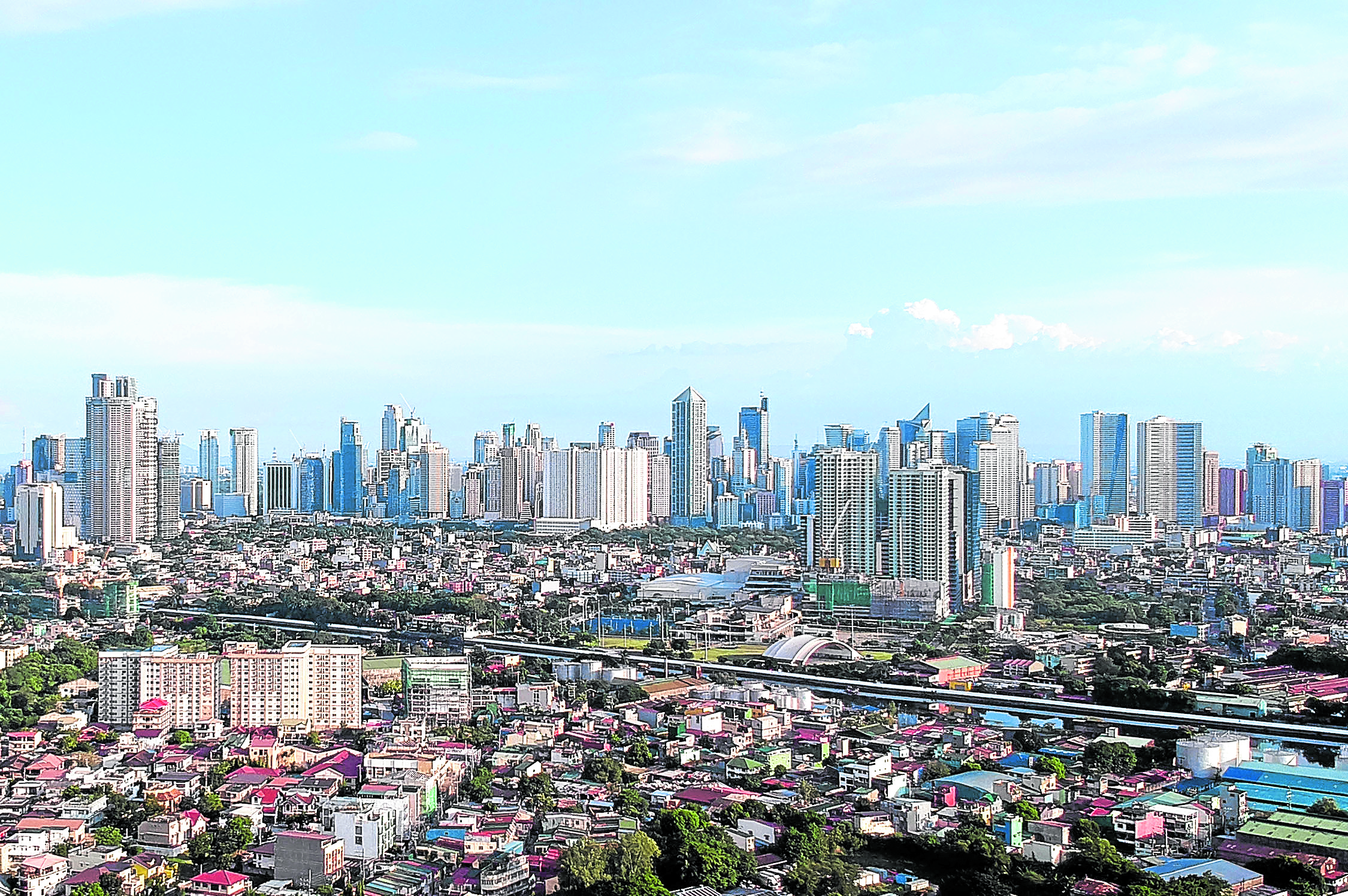
FILE PHOTO: Makati Skyline. INQUIRER/GRIG C. MONTEGRANDE
MANILA, Philippines — Housing prices in the Philippines contracted for the first time in three years in the third quarter amid a high interest rate environment that continued to curb bank lending to homebuyers.
Prices of various types of new housing units in the Philippines—as measured by the residential real estate price index (RREPI) — sagged by 2.3 percent year-on-year in the three months ending in September, latest data from the Bangko Sentral ng Pilipinas (BSP) showed.
That was the first annualized contraction in home prices since the first quarter of 2021.
READ: PH real estate 2025: Poised for growth amid shifting dynamics
On a sequential basis, costs of shelter in the country declined by 1.6 percent, reversing two consecutive quarters of positive growth.
The RREPI is used as an indicator for assessing the real estate and credit market conditions in the country.
It is a measure of the average change in the prices of different kinds of new housing units using banks’ data on actual mortgage loans. This gauge excludes pre-owned or foreclosed homes.
Stark contrast
By area, the BSP said residential property prices in the National Capital Region (NCR) slipped by 15.6 percent in the third quarter. That was a stark contrast to prices of new homes in areas outside of the capital region, which went up by 3 percent.
Data showed prices of duplex houses and condominium units plummeted by 48.1 percent and 9.4 percent, respectively.
Meanwhile, the cost of purchasing new single-detached/attached houses in the Philippines grew by 2.9 percent, while prices of townhouses inched up by 0.7 percent.
The decline in home prices coincided with the drop in housing loans.
Figures showed the number of bank credit to homebuyers fell by 15.7 percent in the third quarter.
While such a decline was not as severe as the contraction seen during the pandemic, the BSP said the reading was consistent with the results of its quarterly survey of consumers, which showed households’ more pessimistic view on buying a house and lot during the period.
As it is, the BSP is now at a point where it has to unwind its previous anti-inflation rate hikes in order to spur bank lending and support consumption.
That said, the central bank capped 2024 with a third quarter-point cut to the benchmark rate that banks typically use as basis when pricing loans.
But beyond rates, banks are also grappling with an elevated level of soured mortgage loans.
Latest BSP data showed residential real estate loans that are deemed nonperforming—or 90 days late on a payment and at risk of default—amounted to P72.74 billion in the third quarter, cornering 6.82 percent of total home lending portfolio of banks.
The ratio was still higher than the prepandemic level of 3.1 percent.

